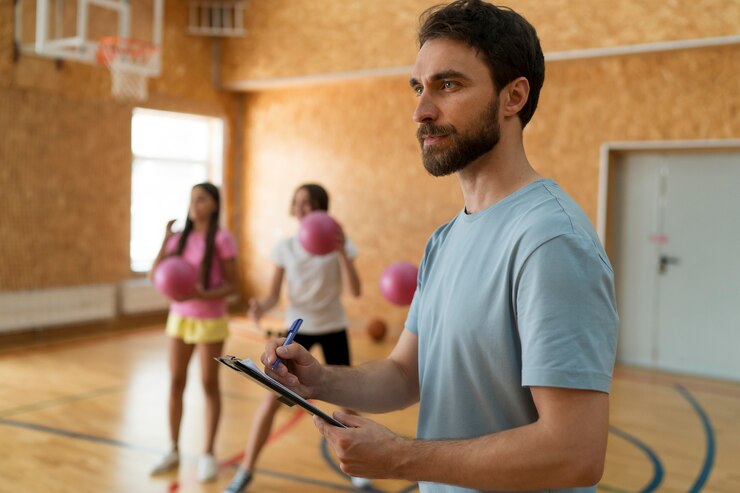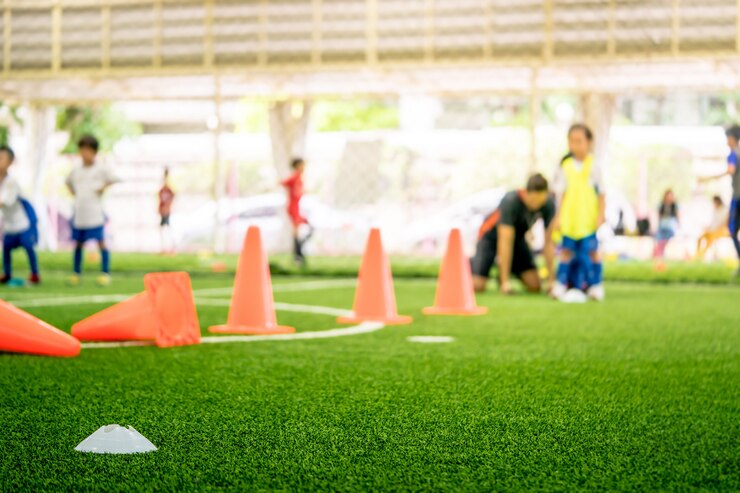Introduction
In the ever-evolving landscape of sports, athletes are constantly pushing the boundaries of human performance. Achieving excellence in sports requires not only natural talent but also rigorous training and strategic guidance. In this pursuit of greatness, sports training centers have emerged as crucial hubs that play a pivotal role in shaping athletes and helping them reach their full potential.
This article explores the multifaceted ways in which these centers contribute to the development and success of athletes.
Specialized Coaching Expertise: Sports training centers boast a cadre of specialized coaches with extensive experience in their respective fields. These professionals bring a wealth of knowledge about the intricacies of specific sports, enabling them to tailor training programs to the unique needs of individual athletes.
Whether it’s refining a golf swing, perfecting a tennis serve, or enhancing endurance for long-distance running, these coaches are equipped to provide targeted guidance that goes beyond what generic training programs can offer.
State-of-the-Art Facilities and Equipment: One of the defining features of sports training centers is the access they provide to state-of-the-art facilities and equipment. From cutting-edge strength and conditioning gyms to high-tech recovery rooms, these centers create an environment that is conducive to optimal performance.
Athletes can benefit from the latest advancements in sports science and technology, gaining a competitive edge through personalized training regimens that leverage the most advanced equipment available.

Comprehensive Physical Assessment and Monitoring: Understanding an athlete’s strengths and weaknesses is essential for effective training. Sports training centers often conduct comprehensive physical assessments to evaluate an athlete’s current condition. This includes analyzing biomechanics, assessing flexibility and mobility, and conducting strength and endurance tests.
With this baseline information, trainers can tailor programs that address specific areas of improvement. Regular monitoring ensures that adjustments can be made to the training regimen as the athlete progresses.
Nutritional Guidance and Support: Nutrition is a cornerstone of athletic performance, and sports training centers recognize its critical role in helping athletes reach their full potential. These centers typically have nutritionists on staff who work closely with athletes to develop personalized dietary plans.
From pre-game fueling strategies to post-training recovery meals, athletes receive guidance on optimizing their nutrition to enhance energy levels, promote muscle recovery, and sustain long-term performance.
Mental Conditioning and Sports Psychology: Success in sports is not solely dependent on physical prowess; mental fortitude is equally crucial. Sports training centers often employ sports psychologists who specialize in mental conditioning. Athletes receive guidance on goal-setting, stress management, focus enhancement, and resilience building.
Mental conditioning programs help athletes develop the mindset needed to overcome challenges, stay focused under pressure, and maintain peak performance during competitions.

Injury Prevention and Rehabilitation: Injuries are an unfortunate reality in sports, but sports training centers are equipped to address both prevention and rehabilitation. Trainers work proactively to design programs that minimize the risk of injuries by strengthening vulnerable areas and improving overall biomechanics.
In the unfortunate event of an injury, these centers provide rehabilitation services, leveraging physiotherapy, recovery modalities, and tailored exercise routines to expedite the healing process and ensure a safe return to training and competition.
Integrated Team Approach: Collaboration is a key feature of sports training centers. Athletes benefit from an integrated team approach, where coaches, nutritionists, physiotherapists, and sports psychologists work collaboratively to create a holistic training experience.
This collaborative effort ensures that every aspect of an athlete’s development is considered, leading to a more comprehensive and effective training program.
Competition Simulation and Tactical Training: Sports training centers go beyond physical conditioning by incorporating competition simulation and tactical training. Athletes are exposed to scenarios that mimic real-game situations, allowing them to hone their decision-making skills and refine their tactical approaches.
This type of training is invaluable in preparing athletes for the unpredictable nature of competitive sports and helps them develop the ability to adapt and strategize in real-time.

Customized Recovery Protocols: Recovery is an integral part of any training program, and sports training centers prioritize it through customized recovery protocols. Athletes have access to advanced recovery tools such as cryotherapy, compression therapy, and hydrotherapy.
These modalities aid in reducing muscle soreness, speeding up recovery, and ensuring that athletes can consistently perform at their best.
Career Transition Support: Recognizing that an athlete’s career extends beyond their active playing days, sports training centers often provide support for career transitions. This includes education on life skills, career planning, and assistance with post-athletic endeavors.
By preparing athletes for life beyond the playing field, these centers contribute to the long-term success and well-being of individuals who have dedicated their lives to sports.
Conclusion
In the competitive world of sports, the journey to excellence is demanding and multifaceted. Sports training centers serve as the catalysts that propel athletes toward their full potential by offering specialized coaching, cutting-edge facilities, comprehensive assessment and monitoring, nutritional guidance, mental conditioning, injury prevention and rehabilitation, an integrated team approach, competition simulation, customized recovery protocols, and career transition support.
As these centers continue to evolve and innovate, they play an increasingly indispensable role in shaping the athletes of today and tomorrow, ensuring that they not only succeed in their respective sports but also lead fulfilling and successful lives beyond the field of play.



